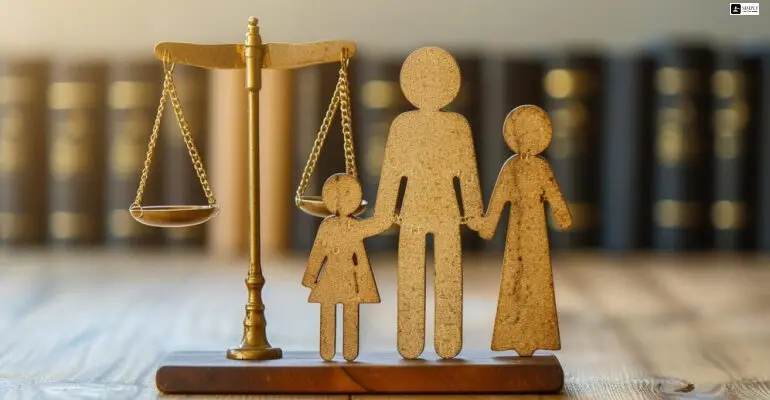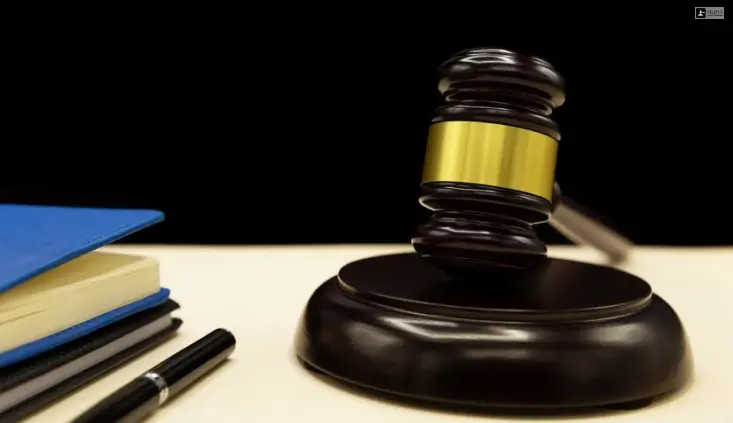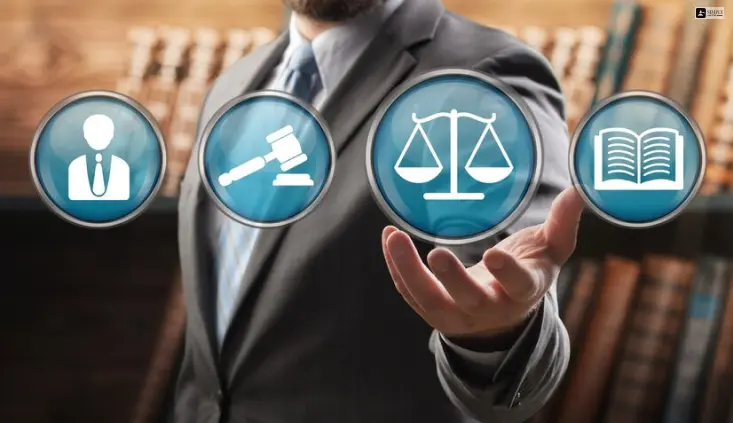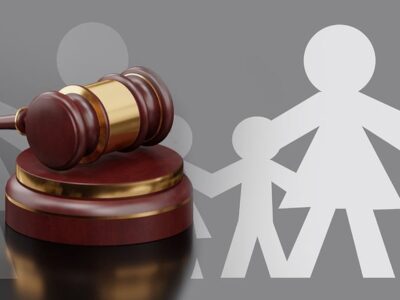
Conservatorship plays a critical role when some people cannot manage their well-being. Conservatorship offers you the legal entity to manage your own affairs at ease. This gives them the legal ownership to make financial decisions on behalf of you, the conservatee.
Legal guardianship, however, is a different discipline altogether. In this case, a minor is under the guardianship of an adult. As adults, they are responsible for making those choices.
This blog will address the overall intricacies and legal ramifications of conservatorship guardianship. You will also know how critical it is to protect the rights and vulnerability of the unfortunate members of our society.
Types of Conservatorships

Conservatorships are classified into various sorts, each suited to meet the specific needs and circumstances of persons who require assistance managing their affairs. Understanding the various forms of conservatorships proves essential for deciding the proper degree of care needed. Here are a few typical types:
Limited Conservatorship
This is solely meant for people who have certain disabilities. This conservatorship assists the conservatee to assist them as much freedom as possible. They only help out their conservatee on limited matters as prescribed upon in the legal document.
General Conservatorship
This is for people who cannot handle their money and personal affairs. In this, the conservator has vast authority for making decisions on behalf of the conservatee in different aspects of life.
Estate Conservatorship
As a conservatee, if you have concerns with financial issues, this particular aspect comes to mind. In this case, your conservator would handle your assets and make all financial choices on your behalf.
Personal Conservatorship
In this case, as a conservator they will look after your personal problems than your other financial issues. They’re responsible enough to make your healthcare and other individual requirements a priority above anything else.
Temporary Conservatorship
This comes into being with prompt intervention. These interventions occur according to your interest as a conservatee. It has a limited timeframe unless you reach a permanent solution.
Voluntary Conservatorship
Some people can apply for conservatorship to designate someone they trust to help them make decisions. This conservatorship allows individuals to preserve some degree of control while getting assistance as required.
Legal Process to Establish Conservatorship

Establishing a conservatorship is a legal process that differs by country. The following is a broad step-by-step guidance to the legal procedure of establishing conservatorship:
Evaluation of Need
The first stage is determining if the individual in question needs a conservator. This might entail obtaining medical or psychiatric examinations to evaluate the level of their incapacity and competence to handle their affairs.
Petition for Conservatorship

Next, you need to submit a proper petition for conservatorship. This has to come under the proper court jurisdiction where you live. It contains information based on the conservatee’s living condition and the reasons for conservation.
Notification of Interested Parties
Needless to say, once you file the petition for conservation, it must be served to all the parties interested. This in turn guarantees everyone to challenge the conservatorship if they deem its necessary. They can also suggest a different conservator for your benefit.
Appointment of Legal Counsel
In the next step, as you get legally represented by your chosen conservator, you need to appoint a family lawyer according to your choice. However, if you cannot afford counsel for yourself, the court will assign you one.
Investigation and Hearing
The court will now investigate the circumstances of the requested conservatorship. This investigation will involve different interviews with your conservator, medical professionals and other parties. The hearing will then determine the legality and appropriateness of the conservatorship.
Appointment of Conservator
If the court thinks that you definitely need a conservator, they will appoint you your chosen conservator. The court will select either your preferred conservator or a lawyer according to your needs.
Letters of Conservatorship
Now, once the conservator is appointed, the court will now issue letters of conservatorship. This will grant your conservator to make decisions on your behalf, legally.
Ongoing Court Supervision
If you think the legal procedure is done with you, you’re wrong. The court will continue monitoring the conservatorship to ensure that the conservator works in your best interests. This entails filing periodic reports with the court and securing court clearance for important decisions.
Rights and Responsibilities of a Conservator

The powers and obligations of a conservator in the United States are critical components of the legal framework that governs conservatorship. Here’s the breakdown:
Rights of Conservators
Legal Authority: A conservator has been granted legal authority by the court to make decisions on behalf of the conservatee.
Right to Information: Conservators can view the conservatee’s financial data, medical information, and other papers required to perform their duties.
Rightful Representation: Conservators can represent the conservatee’s interests in legal procedures, such as initiating lawsuits or defending against legal actions.
Compensations: In some situations, conservators may be entitled to appropriate pay for their services, depending on the jurisdiction’s laws and the conservatorship’s conditions.
Responsibilities of a Conservator
Fiduciary Duty: Conservators have a legal duty to always act in the best interests of their conservatees. This involves managing the conservatee’s funds wisely and making decisions that benefit their well-being.
Financial Management: Conservators are in charge of the conservatee’s financial affairs, which include paying bills, managing investments, and ensuring that the conservatee’s financial requirements are fulfilled.
Personal Care: In circumstances of conservatorship, conservators are in charge of making choices about the conservatee’s health care, living arrangements, and other private affairs.
Reporting and Record-Keeping: Conservators must maintain thorough records of all financial transactions and decisions made on behalf of the conservatee. They may also be obliged to submit periodic reports to the court and update their conservatorship.
Criteria to Become a Conservator

There are no specific criteria to become a conservator. However, it might differ at times based on your jurisdiction. Let’s see what the common characteristics are of becoming a conservator:
Legal Competence
Needless to say, the conservator should be legally eligible to act as a conservator. That means, your conservator should possess a sound mind and doesn’t have any legal constraints like an arrest warrant to perform their duty as a conservator.
Relationship to the Conservatee
Courts generally prefer someone who is a family member of a relative. However, it completely depends upon the discretion of the court to look after your best interests.
Ability to Serve
The conservator should be capable of carrying out the duties as a conservator. This means that they have to be seasoned enough to handle your financial and legal affairs and act according to your best interests.
Absence of Conflicts of Interest
Make sure that your conservator discloses any possible or present conflict of interest emerging from the relationship. It also encompasses issues that might even encompass issues about conservatorship. The court will then examine these criteria thoroughly and appoint someone as a conservator.
Good Character and Reputation
When appointing conservators, courts may examine their character and reputation. If your conservator has a history of financial mismanagement or other concerns that may affect their ability to serve as a conservator.
Legal Rights of a Conservatee
A conservatee’s legal rights are key to conservatorship legislation that safeguards their interests and well-being. The conservatee retains some rights that must be upheld even when the conservator has decision-making authority. Here are the primary legal rights of a conservatee:
Right to Legal Representation
As a conservatee, you have the right to legally represent yourself during the proedure of conservatorship. This will guarantee an air-tight safety of your interests. Even in court proceedings, your opinions would be paid heed to.
Right to Due Process
As a conservatee you have the right to preside over different conservatorship proceedings. You can even oppose your conservator’s appointment and demand a fair hearing in the court.
Right to Object and Appeal
In this case, you will have the right to object to your conservator’s decisions. You can even appeal court findings involving your conservator’s conservatorship. This enables you to question activities they perceive as not in your best interests.
Right to Personal Autonomy
While a conservator may control some parts of your life, you, however, retain the right to make decisions outside the conservator’s jurisdiction. In the case of personal relationships and lifestyle choices your decision as a conservatee is final.
Right to Communication and Visitation
Conservatees can speak and visit with family members, friends, and others of their choice. They also have the right to have visits and retain social relationships unless prohibited by a court order for compelling reasons.
Right to Access Information
Conservatees can obtain information about their finances, medical treatment, and other critical aspects of their health. This includes the right to inspect financial and medical documents, subject to court-imposed constraints.
Right to Dignity and Respect
Conservatees are entitled to dignity, respect, and attention for their wants and choices. Conservators must act in the conservatee’s best interests while respecting their autonomy and uniqueness.
Right to Termination
Conservatees can petition the court to terminate or alter their conservatorship if they think they no longer need help or want to change conservators.
Future Trends in Conservatorship
It is difficult at times to chalk out the future trends that work with conservatorship. It is primarily influenced by the execution of conservatorship. Sometimes, it is also difficult to anticipate all the probable changes. However, we have cherry-picked some of the patterns that might be useful in the coming years:
Increased Focus on Supported Decision-Making
As an alternative to conventional methods of conservatorship, decision making models play an important role in keeping better autonomy. It will help us to make properly informed decisions without any issue.
Assistive Technology Advancements
Technological innovations such as smart home devices, wearable health monitors, and digital financial management tools may provide new ways to support people with disabilities or cognitive impairments, potentially reducing the need for restrictive conservatorships.
Greater Recognition of Rights and Dignity
Future conservatorship laws and practices may place a greater emphasis on protecting individuals’ rights, dignity, and self-determination, with a focus on less restrictive alternatives and safeguards against abuse and neglect.
Alternatives to Conservatorship
There may be a broader range of other options to conservatorship available, such as supported decision-making agreements, advance directives, and community-based support services, giving individuals more flexibility in tailoring assistance to their specific needs and preferences.
Integrating Mental Health and Disability Rights Perspectives
Future conservatorship changes may incorporate lessons from mental health and disability rights perspectives, emphasizing individual autonomy, empowerment, and recovery-oriented methods.
Conclusion
As we traverse the complexity of conservatorship and guardianship, it becomes clear that a balance of protection and autonomy is required. By embracing rising trends such as assisted decision-making, technology improvements, and a stronger emphasis on individual rights, we could establish a more inclusive and dignified system that considers the various needs and preferences of all parties involved. Let us push for procedures that preserve autonomy, dignity, and empowerment for persons under conservatorship, ensuring their opinions are heard and their rights are protected.
Read Also:


